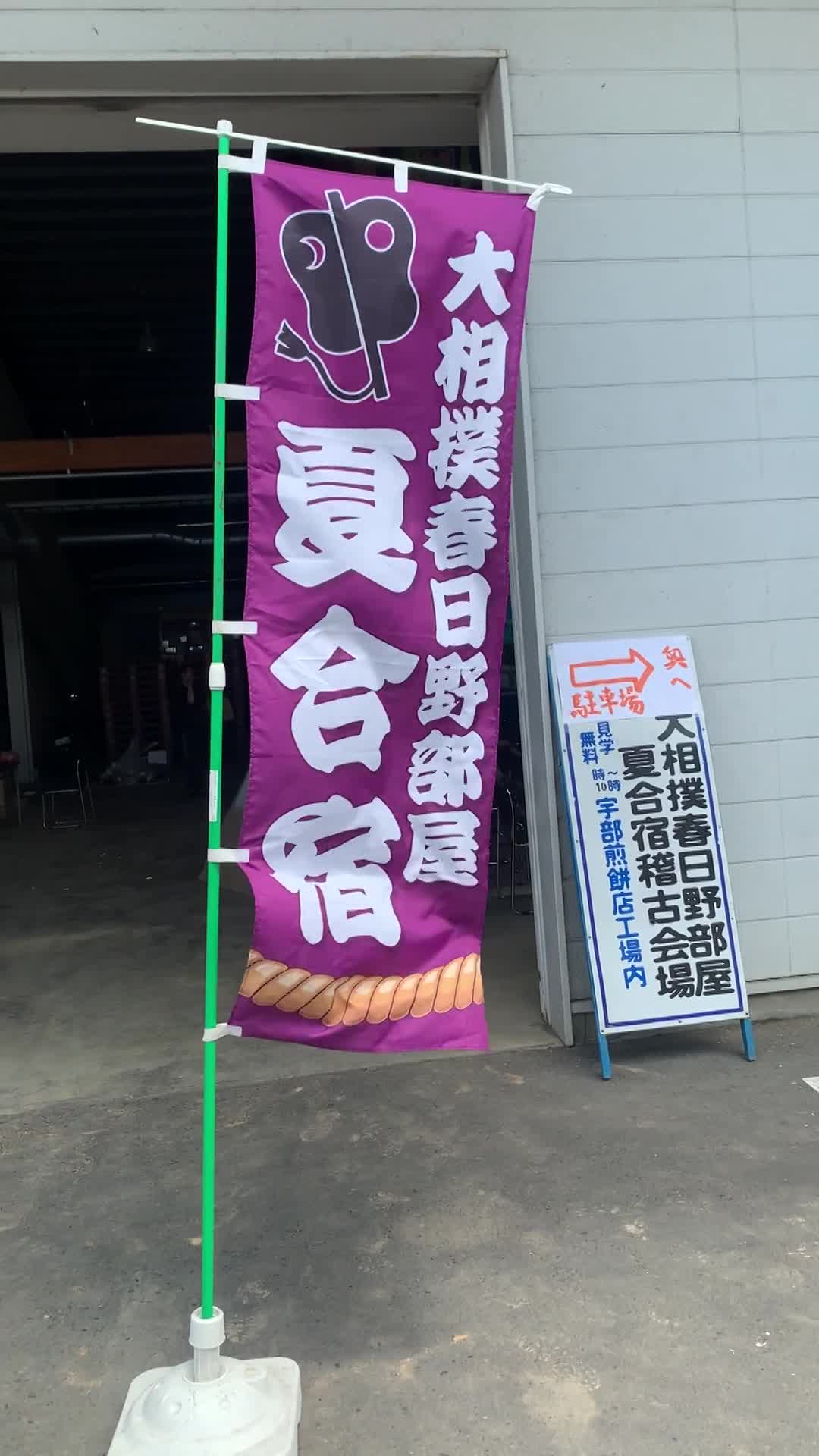When Sumo Wrestlers Serve You Lunch - A Unique Sumo Experience in Kuji
On June 17th, I visited a one-of-a-kind sumo event at a senbei (rice cracker) factory in Kuji City, Iwate Prefecture.
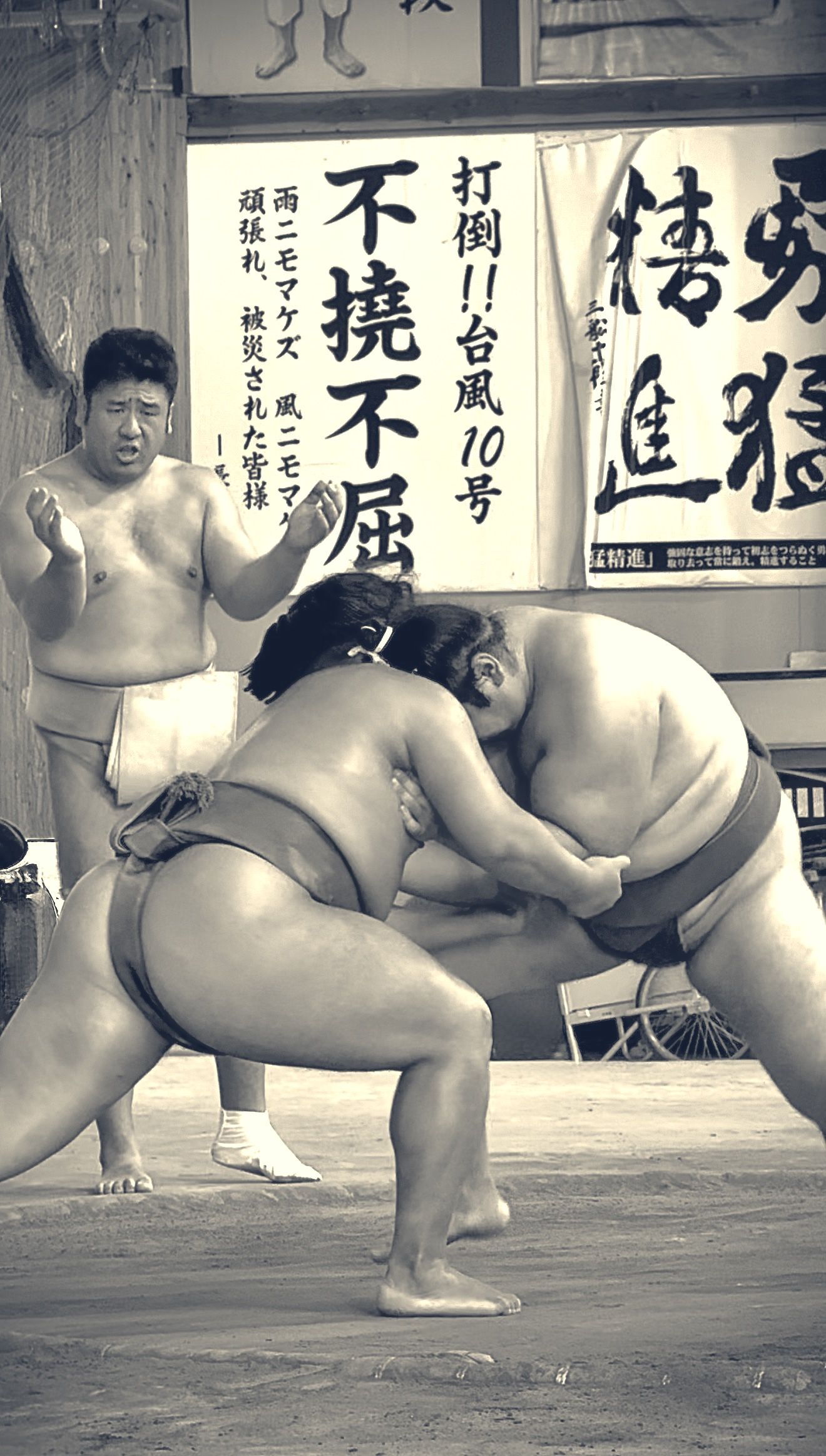
When people think of sumo, they usually imagine the big tournaments in Tokyo or Osaka, but there’s another side to it: where and how these wrestlers train when they’re not competing.
Every year since 2018, wrestlers from the Tokitsukaze stable (Tokitsukaze-beya) have been visiting Kuji for a special summer camp and exchange event. This city is just about an hour’s drive from Ichinohe, which made me feel even more inspired. Events like this show a different face of the sport and the region, and they remind me why I love Iwate so much.
What happened that day?
First, I watched the wrestlers train up close. It was impressive: their size, discipline, techniques, and strong yet graceful movements. It was actually my first time seeing sumo in person, and I wasn’t the only one — many attendees also mentioned it was their first live sumo experience, creating an exciting and warm atmosphere.
But the most surprising part came after the training. The wrestlers themselves served us lunch! Having sumo wrestlers act as waiters was one of the most unique experiences I’ve had in Japan so far. They were friendly, attentive, and full of smiles.
It almost felt like a “sumo café”, a concept that reminded me of cosplay cafés in Tokyo or Osaka. While I wouldn’t suggest turning it into a business, it was a truly valuable and memorable experience. And the price? Only ¥1,000 per person (about 7 USD), an absolute steal!
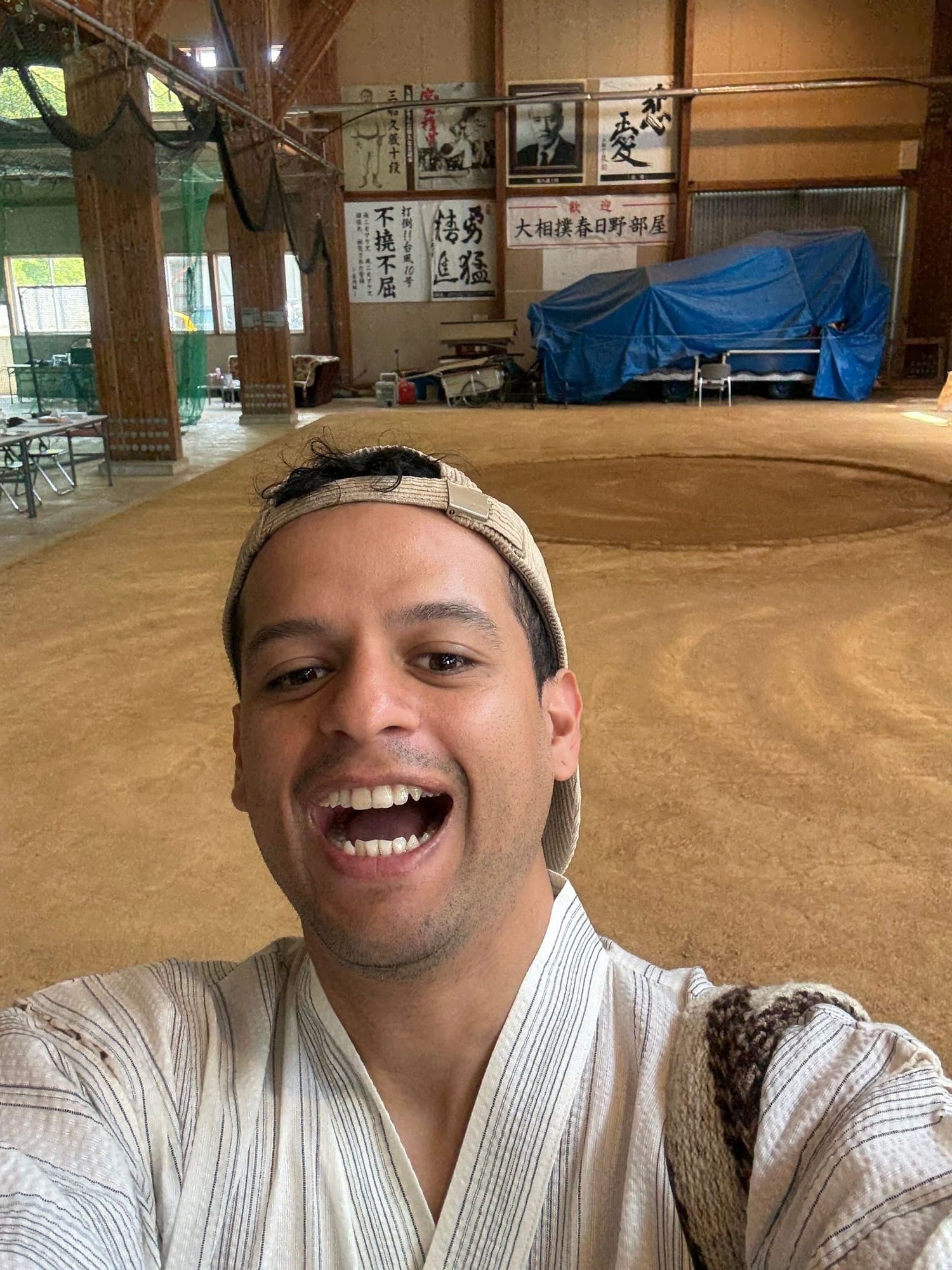
The Menu:
A sweet traditional hot pot called chankonabe often known as "sumo stew," commonly eaten by wrestlers to build strength and gain healthy weight.
White fish and salmon cooked in butter, absolutely delicious!
A side dish made of seaweed cut into noodle-like strips, together with satsumaage (fried fish cake).
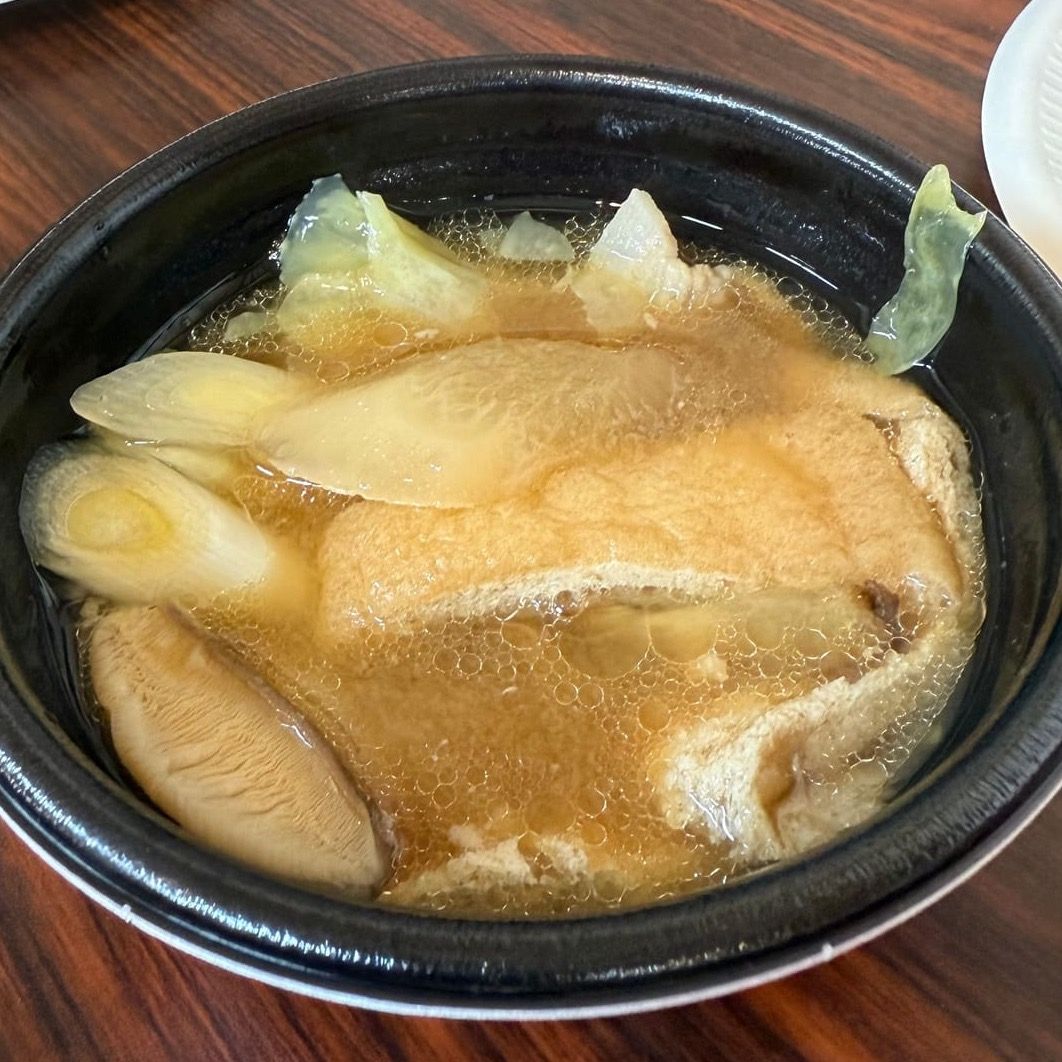
When you see these massive athletes, you might imagine their food to be heavy and greasy, but it’s actually the opposite. The meal was comforting, tasty, and surprisingly healthy, full of vegetables and balanced nutrients. It helped me realize that their large bodies are indeed built with muscle and strength.
Conversations with the wrestlers
While they were serving food, I had the chance to talk with some of them. They shared that they love coming to Iwate in summer because of its cool climate and clean air. Unlike Tokyo and Osaka, where summers are becoming hotter and more humid every year, Iwate offers a refreshing environment surrounded by trees and the sea, perfect for both training and recharging their spirits.
They also told me that for this trip, they paid for a private bus themselves, unlike regular tournaments where travel costs are covered. We even saw their bus, and considering their size, it looked incredibly tight and uncomfortable!
During this visit, they also stopped by Yamagata Elementary School in Kuji, where they were shocked to see how few children there were. This made them reflect on the serious challenges that rural areas face, such as depopulation, while big cities struggle with overcrowded schools. They expressed a strong desire to find ways to give back and leave a positive impact on the local communities they visit.
Reflections
Although this wasn't a top-level professional tournament, the event was truly unforgettable.
What inspired me most was seeing how a simple idea, without large infrastructure or big budgets, can create a powerful and meaningful connection with people.
I truly believe that Iwate (and especially small towns) could benefit greatly from hosting similar, human-centered experiences. Small-scale, unique events like this resonate deeply with visitors and can become valuable tools to promote regional tourism.
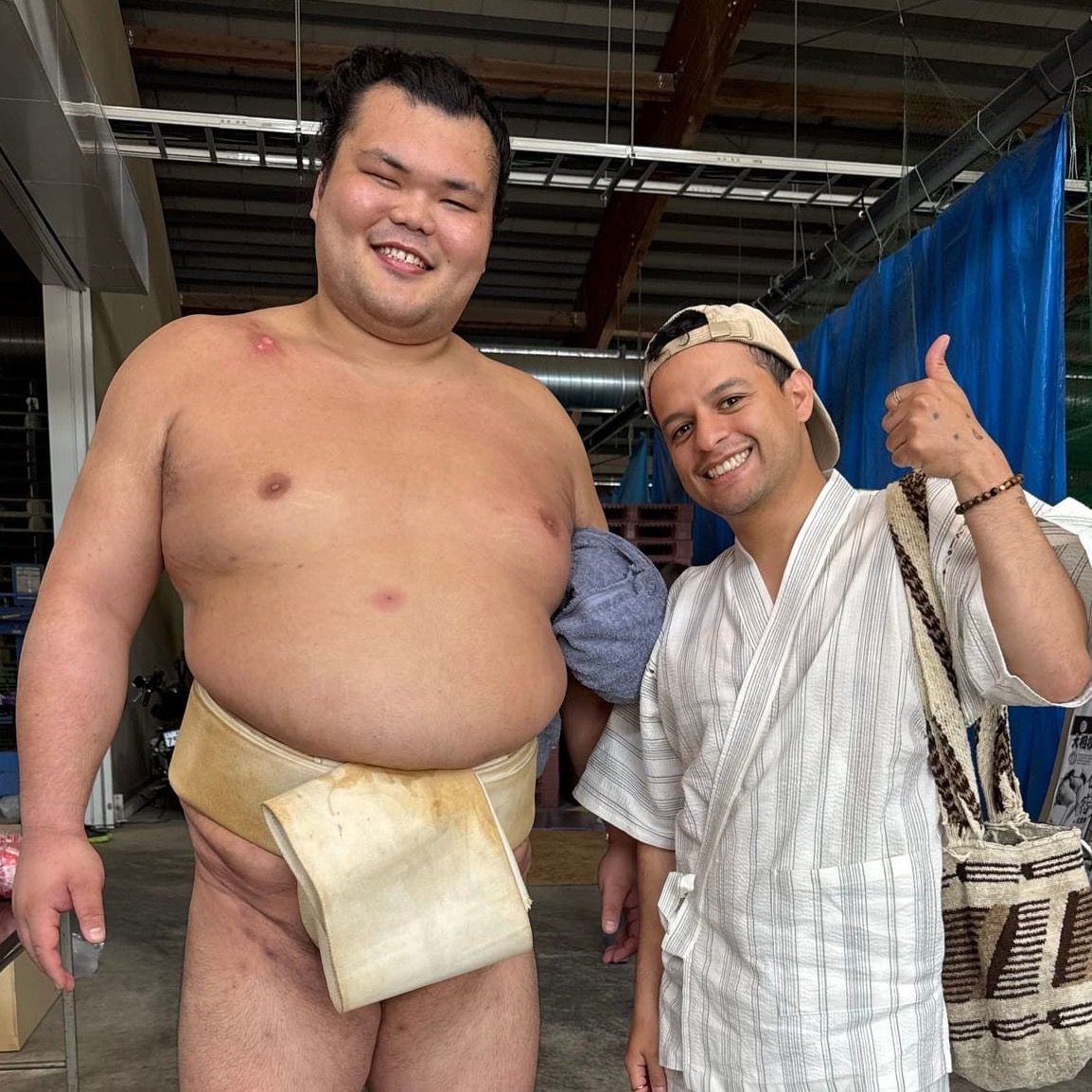
It was definitely one of the most memorable days I’ve had in Japan!
Further Reading
If you'd like to learn more about this unique sumo event and the Tokitsukaze stable's activities in Kuji, you can check out this detailed article by NHK (Japanese):
https://www3.nhk.or.jp/lnews/morioka/20250616/6040025931.html
https://www3.nhk.or.jp/lnews/morioka/20250616/6040025931.html
